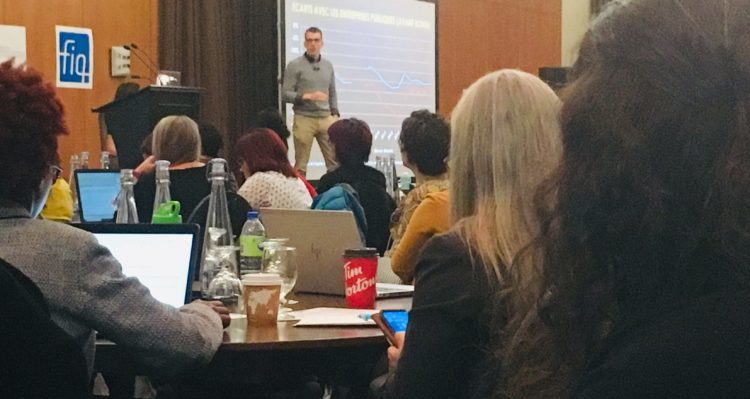
Retirement requires early planning!
Did you know that if you work part-time for 35 years with a $65,000 salary, your annual basic retirement pension will be $27,300? This came as a surprise to the Women’s Network participants on October 22 and 23, 2019.
Three panelists with different backgrounds were invited to explain how retirement and RREGOP work: Marlène Tremblay from Retraite Québec, Guylaine Bernard, FIQ Union Consultant, Social Security – Retirement, and Maude Pugliese, Assistant Professor at the Institut national de la recherche scientifique. Their presentations fuelled discussions and drew a lot of questions and comments.
When planning for retirement, always plan additional contributions so that you are prepared for unexpected life events, such as maternity leave, parental leave, separation, etc. According to the statistics, 26% of couples separate once they reach retirement. They then have to readjust because they planned their retirement as a couple but in the end find themselves single. That’s why it’s important to have additional individual savings.
There was something else that surprised several participants: Whenever you work overtime, whether mandatory or not, none of it goes toward RREGOP contributions. Only the number of regular work hours for your position (e.g., 35 hours for full-time) are taken into account for RREGOP.
Participants were also given an overview of women’s social and historical background in investing. Women only gained the right to apply for credit and open their own accounts in the early 1970s. It’s a right that was won relatively recently and one that women still need to really make their own. Nonetheless, studies show that women are very good investors because they take less risks. What’s more, women have always considered money as something that belongs to their family, even extended family (sister, aunt, cousin, etc.); it is part of their financial mentality, which is reflected in their daily choices.
The ultimate takeaway is that everyone is responsible for planning their own retirement.